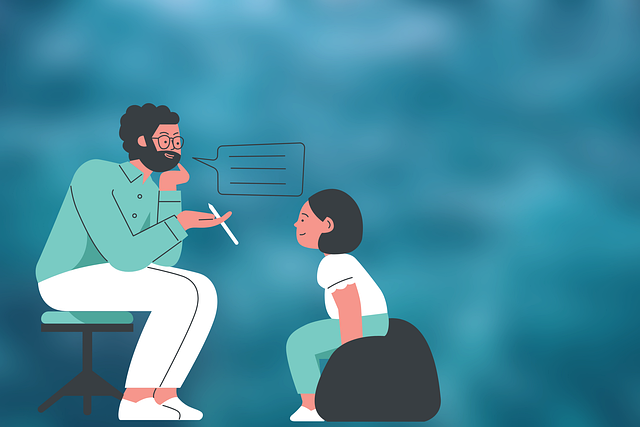In Colorado Springs Gender Identity Therapy, skilled group facilitators create safe, supportive environments for individuals exploring their gender identity, leveraging active listening, empathy, and cultural sensitivity. They guide therapeutic discussions, encourage open dialogue, and integrate inclusive language to foster trust and belonging, adhering to local Mental Health Policy guidelines. Effective communication strategies enhance mood management within the group dynamic, while peer support and interactive activities drive positive therapeutic outcomes, supported by resources from the Mental Wellness Podcast Series.
In Colorado Springs, facilitating mental wellness groups for gender identity therapy requires a nuanced approach. This article explores proven techniques for group facilitators, focusing on creating safe, inclusive environments that foster support and understanding. We delve into effective communication strategies to facilitate meaningful conversations, along with methods to encourage active engagement and peer support among participants. By implementing these practices, therapists can enhance the therapeutic experience in Colorado Springs gender identity therapy settings.
- Understanding the Role of a Group Facilitator in Colorado Springs Gender Identity Therapy
- Creating a Safe and Inclusive Environment for All Participants
- Effective Communication Strategies for Facilitating Supportive Conversations
- Encouraging Active Engagement and Peer Support Within the Group Setting
Understanding the Role of a Group Facilitator in Colorado Springs Gender Identity Therapy

In Colorado Springs Gender Identity Therapy, the role of a group facilitator goes beyond simply organizing sessions. They are architects of safe spaces, fostering environments that encourage open dialogue and profound self-discovery for individuals navigating gender identity challenges. These facilitators must possess a deep understanding of trauma support services, as many clients may carry emotional burdens that require delicate handling.
Effective facilitation involves guiding discussions, facilitating activities designed to promote mental wellness, and ensuring every participant feels heard and respected. The goal is not only to address the unique needs of each individual but also to create a supportive network where shared experiences can lead to collective growth and understanding. This approach complements the broader mission of Colorado Springs Gender Identity Therapy, enhancing the overall effectiveness of services provided while mitigating potential burnout prevention challenges that can arise in such intensive settings.
Creating a Safe and Inclusive Environment for All Participants

Creating a safe and inclusive environment is paramount when facilitating mental wellness groups, especially in diverse settings like Colorado Springs Gender Identity Therapy. This involves cultivating a non-judgmental space where all participants feel seen, heard, and respected. It means addressing potential power imbalances and ensuring every individual’s unique experiences and perspectives are valued.
Facilitators play a crucial role in setting the tone by demonstrating active listening, empathy, and cultural sensitivity. Incorporating inclusive language and encouraging open dialogue helps foster an atmosphere of trust and belonging. Additionally, understanding and adhering to local Mental Health Policy Analysis and Advocacy guidelines can further strengthen this safe haven, ensuring everyone’s rights are respected and their needs are addressed effectively, ultimately enhancing the overall mood management within the group dynamic.
Effective Communication Strategies for Facilitating Supportive Conversations

Effective communication is a cornerstone of facilitating supportive conversations within mental wellness groups. As a group leader, adopting an empathetic and non-judgmental approach fosters a safe space for individuals to express their thoughts and feelings openly. Active listening, where facilitators reflect back what they’ve heard, validates participants’ experiences and encourages further sharing. This technique, often used in Colorado Springs Gender Identity Therapy, helps individuals feel seen and understood, strengthening the therapeutic bond.
Incorporating emotional intelligence into communication strategies is equally vital. Facilitators should model self-awareness by acknowledging their own emotions and those of group members. By recognizing and responding appropriately to emotional cues, facilitators create a supportive environment that encourages vulnerability and genuine connection. This approach, in conjunction with Trauma Support Services tailored to individual needs, enhances the overall mental wellness of the group dynamic.
Encouraging Active Engagement and Peer Support Within the Group Setting

In a mental wellness group setting, fostering active engagement and peer support is a powerful tool for enhancing therapeutic outcomes, especially in Colorado Springs Gender Identity Therapy contexts. Facilitators can encourage members to share their experiences and insights by creating a safe, inclusive space where everyone feels heard. This not only promotes open dialogue but also empowers individuals to develop inner strength through the validation of their peers. By actively participating in discussions and offering support to one another, group members can create a sense of community, which is essential for lasting mental wellness.
The dynamic between group members can significantly impact the overall success of therapy sessions. Facilitators should aim to cultivate an environment where individuals feel comfortable expressing themselves authentically. This can be achieved through icebreakers, interactive activities, and structured discussions designed to encourage participation. Moreover, integrating elements from the Mental Wellness Podcast Series Production and Inner Strength Development can provide additional resources and inspiration for members to continue their growth journeys beyond the group setting.
In the context of Colorado Springs Gender Identity Therapy, group facilitation plays a pivotal role in fostering safe, inclusive, and supportive environments. By employing techniques that encourage active engagement and peer support, facilitators can significantly enhance therapeutic outcomes. Effective communication strategies, as discussed, are essential tools to navigate complex conversations, ensuring all participants feel heard and valued. These approaches not only enrich the group dynamic but also serve as powerful methods to improve mental wellness, offering a transformative experience within this specialized therapy setting.














